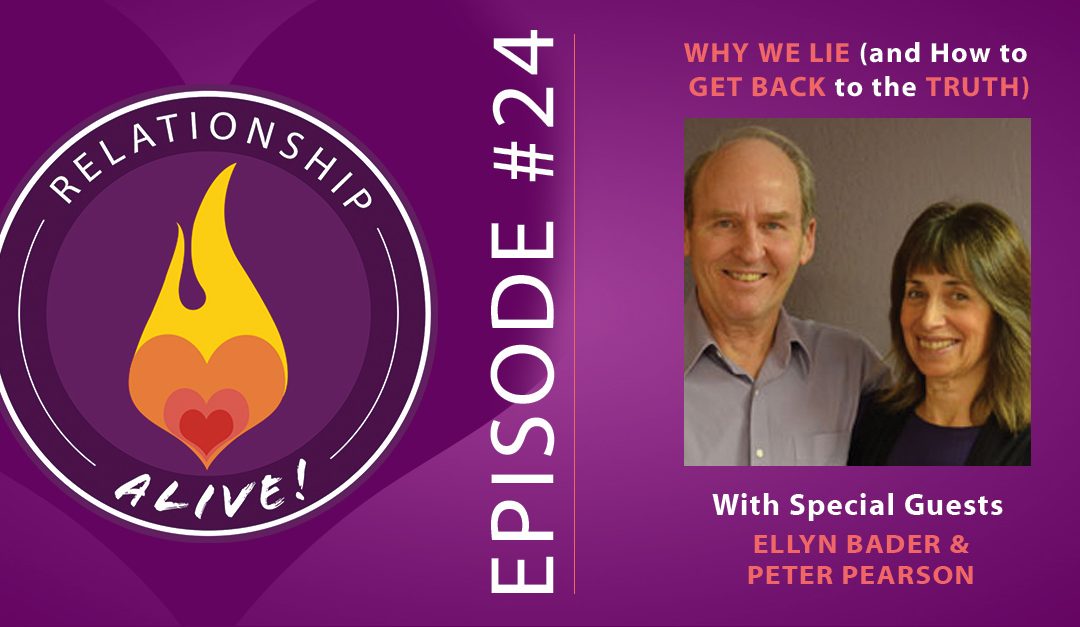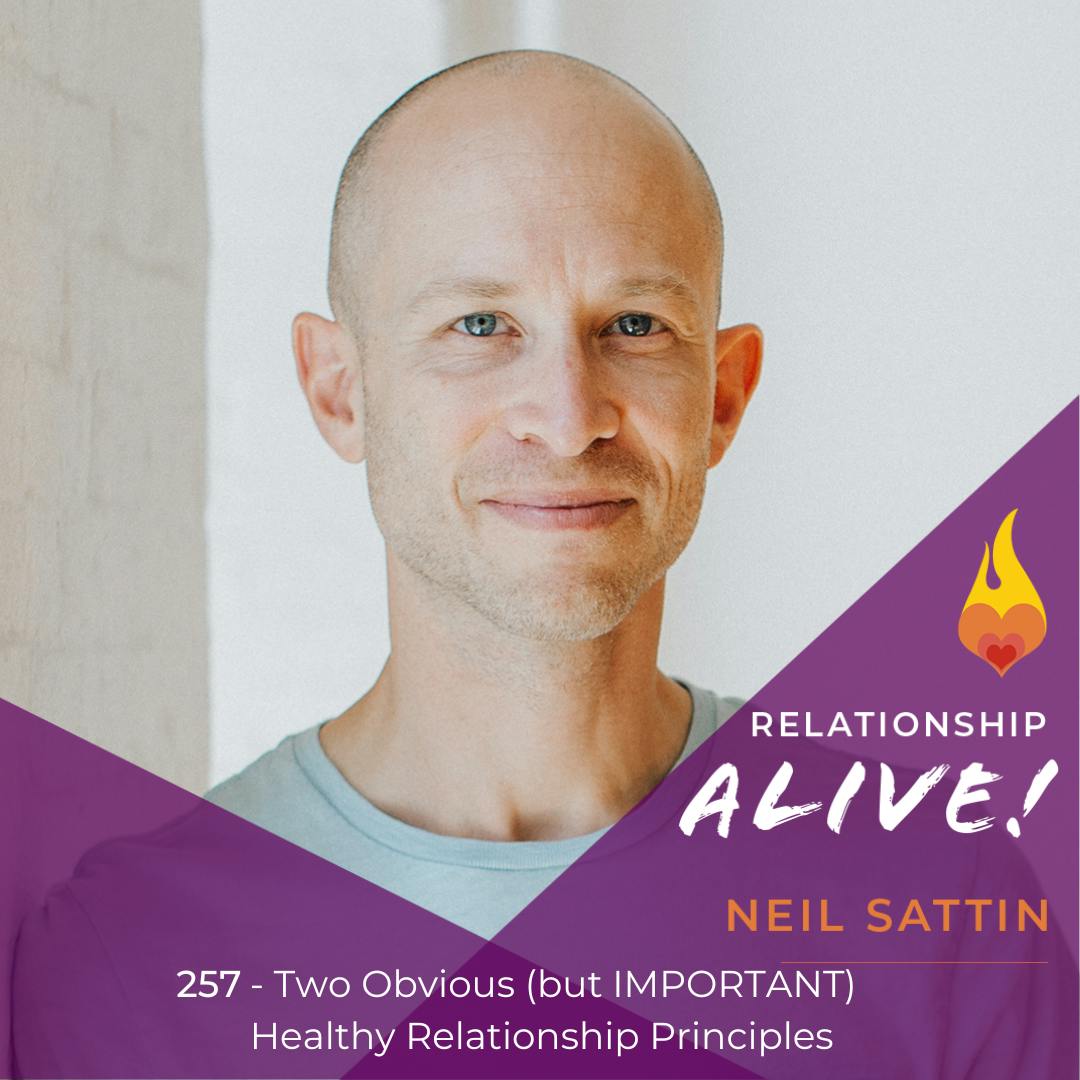Today, we’re going to talk about lies. Why do we lie - ever? And while it’s easy to perhaps scapegoat people who aren’t telling the whole truth - as with anything in relationship - it takes TWO to tango - so how does the person who’s being lied TO help create the dynamic? Most importantly - how do you bring your relationship back into balance, so that you can experience the power created by telling the truth and being in integrity. Today’s guests are Ellyn Bader and Peter Pearson. They are two of the world’s leading experts on couples therapy and the topic of honesty in relationship, and their groundbreaking book - Tell me No Lies - explores exactly these questions about how to undo the damage caused by all lies - big and small - in relationship.
In today’s conversation, Ellyn Bader, Peter Pearson and I discuss the following:
What constitutes a lie? Lying is not an exact science, rather it occurs on a continuum, with several distinct types:
Equivocations: Giving ambiguous, indirect, or contradictory information
Exaggerations: Overstatements and truth stretching
Understatements: Minimizing or downplaying aspects of the truth
Concealments: Deliberately omitting information that is important and relevant
Deliberate lies: Making up information, or giving the opposite of the truth (no versus yes)
Felony lies: These are the big high stakes ones
Why do we lie? The good the bad and the ugly. Lying always has a purpose, and is often resulting from a need to protect something. What is crucial to consider is the motivation behind the lie, and what in fact the individual is trying to protect. Is it their ego? Their sense of security? Fear of shame? In some cases, as often happens in the beginning of a relationship, lies may be told in order to HELP solidify the bond and create closeness (“Yum, the dinner you made was delicious!”). In other cases lies are told in order to avoid conflict or tension, or to avoid hurt feelings. We also lie to advance ourselves, enhance our image, protect ourselves, or gain power. While there are minor seemingly loving lies that are told in order to protect the bond, it is almost always more successful to protect the relationship through truth telling, as risky and scary as it may seem.
Lying between me, myself, and I: There is an enormous amount of self deception in most relationships, and let’s be honest, in our lives in general. Everyone, whether currently coupled or not, can take time to ask: Am I really telling myself the truth about my own experience? How well do I know myself? How much am I able to communicate what I know about myself?
These questions are incredibly potent to hold as a relationship begins to unfold. In the honeymoon phase, or what Bader refers to as the ‘temporary psychosis phase’ due to the plethora of neurochemicals involved with falling in love that make us “bonded and stupid”, it is very normal to lie. Mostly to oneself. Amidst the adrenaline and excitement of new love, many people do not pay attention to their own wishes, desires, or needs. Some may forget to ask themselves “Who am I really? What really matters to me?”. This is natural because when people first come together there is a strong desire to try and be the same. They may knowingly and unknowingly minimize differences and emphasize ways they are alike in order to prove compatibility to each other, and find alignment. This can actually be a cute, sweet, profound, and important process, however where it goes from here is the make or break…
Lack of differentiation creates havoc in the long run: While it may be normal to search for commonality in the beginning of a relationship, a couple must begin to welcome and celebrate difference early on in order to avoid getting stuck on “the dark side of the honeymoon”, that petri dish for resentment, fear, instability, and ultimately distrust. Failure to differentiate usually results from one or both partners being conflict avoidant, meaning that they hold the basic fear that conflict will lead to rupture or collapse of the relationship. Because they are seeking security above all else, they are willing to overcompensate or over adapt for long periods of time in order to keep the illusion of permanence in the relationship. This begins by the conflict avoidant partner not expressing their desires, needs or wishes, and frequently includes lies by omission. This partner gives more and more of themselves, ignoring important parts of themselves, until they either collapse, become depressed, develop secret anger, etc. This leads to the next stage, the “Freedom Unhinged” state, in which the relationship begins to disintegrate. More extreme lying occurs, including the GREAT BIG felony lies (gambling, infidelity, etc). The stakes are high, and as one partner becomes more and more adamant that such and such is NOT happening, the other partner may even begin to question their own sanity. Often at this point trust has been so violated that couples usually separate as it is rare to be able to piece everything back together.
NOTE TO THOSE EXPERIENCING FELONY LIES: It is advisable to get a therapist involved. If you guys want to try to work through it on your own make sure to slow down. Often the partner who has lied is in a hurry to heal and looks to find solutions quickly. Let your partner express their feelings, all of them, and allow them to ask LOTS of questions. Regaining trust isn’t simply a decisional process. It takes a long time and it takes a lot of small things done daily. Do what you say you are going to do.
It is common to experience disillusionment as new love matures! Some things just don’t show up in early stages. Realizing truths can come after commitments have been made, and need not incite panic. Oscar Wilde says “the truth is rarely pure and never simple”, and this is incredibly true in relationships.
Inviting truth and how to AVOID becoming conflict avoidant: In order for couples to evolve well and enter into a growthful process from the honeymoon phase, it is key to start substantial truth telling early on. Each partner speaks up about things that are important and matter to them, even at the risk of moving into areas of disagreement. Although the early years of differentiation are not always easy, there are many moments of growthful tension. It takes courage not only from the one who tells their truth, but from the partner who is willing and able to truly listen and hear their partner share!
Lie Invitees: Knowing that lying is often one of those ‘two to tango’ deals, how does the person who’s being lied TO help create the dynamic? Somebody becomes a lie invitee when they do not fully collaborate on the commitment to truth telling. For example, when your partner shares honestly and with integrity with you and you attack them or shame them, they will inevitably think twice about being honest in the future, thus leading to increased deception. So how are you receiving your partner’s honesty? Are you being reactive instead of responsive? Are you being a martyr? Acting above? Playing victim? If so you may actually be encouraging your partner’s lie telling. The BIGGEST self deception that occurs in relationships is the belief that we are victims and not contributors in the distress.
Truth telling is a collaborative process, so always stay AWARE of your participation in what goes on in your relationship. Ask yourself “what would be required of me to bring more honesty to our partnership?”, “What can I do that would make my partner glad to be with me?”, “How can I be in order to increase ease and fluency in our communication?”. Come clean when you need to, and work towards being willing to SEE and BE SEEN, HEAR and BE HEARD by and with and for each other.
According to Bader and Pearson, THE ABSOLUTE FOUNDATION OF MAKING A RELATIONSHIP WORK IS NOT LOVE IT IS TRUST. Explore this, meditate on it, discuss it, play with it, reject it, embrace it, and notice. Notice how you react and respond.
Come clean with grace and generosity. When you become aware of a place in which you have not been totally honest with your partner, do not rush into confession. There is an art to everything, confessions included. If you are going to express a difficult truth, give your partner a loving heads up. Telling lies/not telling the truth can feel so shaming and heavy that there is a tendency to want to unload quickly and release the guilt as soon as you feel ready to share. This is not advised! It is as if you hit your partner with two arrows instead of one, stinging them once with your news, and second with the selfishness of your delivery. So SLOW DOWN (less in time, but more in tone). Say something like “Hey, I want to share something with you that isn’t easy for me to say”, and then verbally honor that your motivation in telling them the truth is to continue to build the trusting foundation you are both committed to creating in your relationship. This acts as a paradigm shifter- from ‘me and you’ to ‘us’, and helps facilitate your partner’s ability to hear the truth.
BE CURIOUS NOT FURIOUS- There is also an art to receiving truth telling. If your partner has shared something with you from a generous and couple centered place, it is good to remember to respond first with “I really appreciate your honesty”. Work together towards a place in which you can respond by staying curious, and saying “tell me more”. When and if you recognize ways in which you are either being a lie invitee, or having difficulty receiving your partner’s honesty, share this. Say something like “Honey, I am noticing that I have been doing such and such and that it might be making it hard for you to be honest with me”. By the mere fact of owning one’s contribution to the patterns, doors will open and fresh air will come into the relationship. You can also experiment together. Say “Look, I know that I have been reactive in the past, and I am really going to try to listen and hear you without demanding anything in this moment”. Then take turns! Give this platform a try and see if it eases or shifts any stuckness in your communication patterns.
Truth is a process and the key is to build a culture of truth telling in your partnership- Nobody is totally honest all of the time, but if you can start talking more openly about how to give and receive honesty before the nitty grittys come crawling out of the closets, the monsters from under the bed, those once upon a time white lies get revealed, it will make all the difference in the world. The more hiding you are doing the less vibrancy and energy is available for the relationship and for your life. So, create a container and a commitment together to being clear and direct, and don’t forget these two rhymes:
IT TAKES TEAM WORK TO MAKE YOUR DREAM WORK
BE CURIOUS NOT FURIOUS
Resources
Check out Ellyn Bader and Peter Pearson’s work at: http://www.couplesinstitute.com
Read their book- Tell Me No Lies
https://www.neilsattin.com/lies Visit to download the show guide, or text “PASSION” to 33444 and follow the instructions to download the show guide to this episode with Ellyn Bader and Peter Pearson
Our Relationship Alive Community on Facebook
Amazing intro/outro music graciously provided courtesy of:
The Railsplitters - Check them Out!


